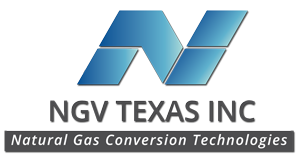Today there are a variety of non-EPA certified systems that are sold on the Internet and/or offered by automotive shops. Because they are illegal according to federal laws, NGV Texas does not sell or recommend non-certified CNG conversion systems. However, consumers that do choose to purchase non-EPA certified systems should be extremely cautious and obtain information from the person installing such systems to ensure that the equipment they use and the installation is safe.
Certification is legally required by EPA and CARB. The fact that a system is certified for use in another country does not mean that it meets U.S. EPA or CARB requirements as most other countries have less strict vehicle emissions laws and currently neither EPA nor CARB recognizes foreign certifications. In addition, currently, there are currently no federal installer certification requirements. Therefore, buyers should beware of shops touting that they are federally certified to do such installations.
Conversion Kits Certification:
A much larger number of U.S. vehicles are now certified for CNG conversion. Each conversion must meet stringent EPA and/or California Air Resources Board (CARB) requirements. Installation of an engine conversion package and fueling system may be done after the vehicle has been in service or when the vehicle is first purchased. EPA and CARB require that Small Volume Manufacturers (SVMs) provide appropriate documentation and training to installers of their systems, commonly referred to as qualified system retrofitters (QSR).
Installation by a non-qualified installer could damage the retrofit equipment or the engine (or both), compromise vehicle performance, or render the vehicle unsafe to operate. No EPA- or CARB-certified engine conversion systems should be sold to untrained/unapproved installers.
This is not to be installed in your own garage or by the local untrained mechanic. Some SVMs prefer to install their systems themselves at their corporate facilities while other SVMs choose not to install their own equipment opting instead to sell their systems only through QSRs. Typically, the QSR is responsible for obtaining the fuel storage system components (cylinders, high-pressure tubing, pressure release device (PRD), brackets, protective plates, etc) and installing these components in accordance with the National Fire Protection Associations (NFPA) Vehicular Fuel Systems Code (NFPA 52).
A Certificate of Conformity (certificate) from EPA or an Executive Order (EO) from CARB applies to a specific engine families. To obtain a Certificate or EO, (SVMs) must submit substantial emissions performance data and related documentation to the EPA and/or CARB for review. Additionally, new SVMs may be asked to submit a converted vehicle to the EPA or CARB for rigorous testing to verify this data. This testing assures that the retrofitted vehicle meets the same stringent emissions requirements as the original equipment manufacturers (OEM). The testing also ensures that the retrofit system works seamlessly with the OEMs on-board diagnostics system.
Non-certified systems usually do not meet this important criteria and often fail state or local emissions tests. The process of engineering, manufacturing, installing, pre-testing and then submitting a proposed retrofit system to an EPA and or CARB approved laboratory for certification is a time-consuming and expensive process that may cost as much as $100,000 or more per engine family. SVMs recoup this R&D investment by amortizing the cost across the expected sales volume, adding it to the price they charge for the various conversion kits.
